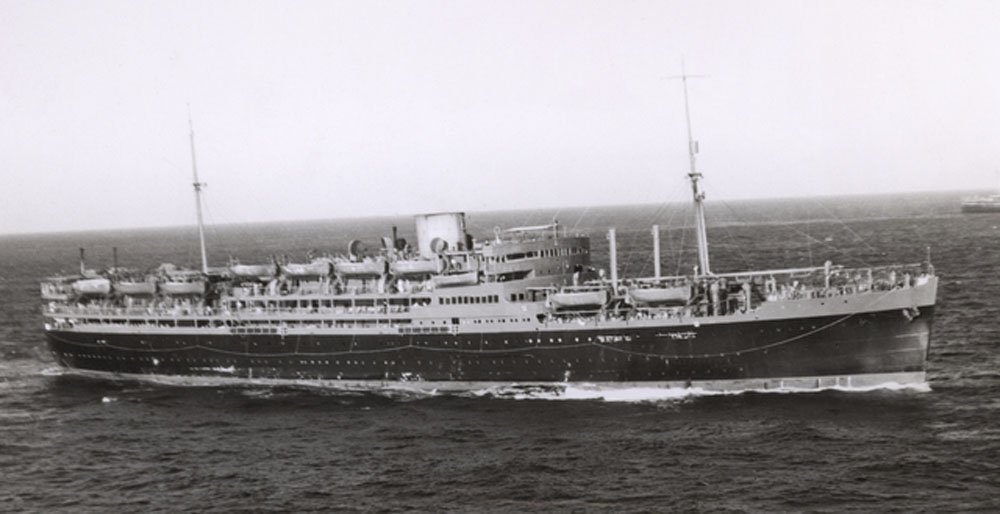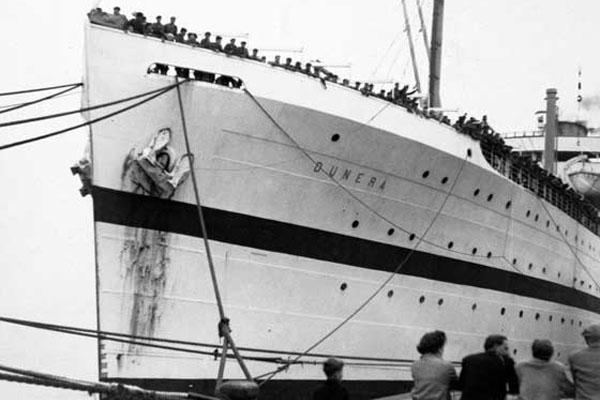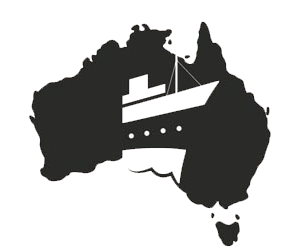An involuntary Journey:
Dunera
Interned in Australia

In 1940, 2,300 Germans and Austrians – mainly those persecuted by the Nazis – as well as 200 Italians were deported to Australia by the British government. They survived a true horror trip for 57 days. This little-known chapter of the Holocaust and exile during the Nazi era is commemorated at www.dunera.de. This website is named after the passenger ship HMT Dunera, which was used for this “involuntary world voyage” of deprivation, humiliation and violence. One of the “guests” of the British government was Heinz Dehn, the father or grandfather of the initiators of this website.
Research into the history of the Dehn family showed that many friends in Australia had been deported to Australia on the Dunera or had travelled there on other escape routes from the Nazis.

In Australia today, the “Dunera Boys” enjoy a high reputation, as do the almost 270 Jews who were brought to Australia from Singapore at the same time. The Dunera Association – many members are second or third generation descendants of Dunera Boys – organises annual meetings. Historians from several universities Down Under carry out a wide range of research work. The works of art created in the internment camps are preserved and exhibited, and compositions are performed again.
In Germany, the history of the men of the Dunera, which is part of the Holocaust and Jewish exile in England and Australia, is little known. Some of the life stories of the internees are still unknown today and should be rescued from oblivion. They deserve it. This website aims to publicise this with biographies and contributions to the history of the deportations.
The experiences and suffering of the Dunera Boys and the millions of others who had to and were able to bring their lives to safety back then are basically no different from the fates of today’s victims of political, religious, nationalistic or otherwise reprehensible persecution.
One or the other contribution, one or the other quote, may evoke associations with today. It is up to the reader to determine this.The trigger for this can be found in suffering, in flight, expulsion, persecution, deportation and exile.And in the headlines and social debates that move people in our time.In this respect, dunera.de aims to provide impetus beyond the historical reference. dunera.de endeavours to be historically accurate, even if it does not claim to work in a historiographical manner.
dunera.de is a private, voluntary and non-commercial project that also includes personal comments.New contributions will be added at irregular intervals. We also cordially invite guest authors to participate in this memoir and contemporary work.
Peter Dehn, Paul Dehn, April 2024.
Our subjects
News
New contributions
“Aktionsjuden”
- , Von Peter Dehn

Ginette Rozenfeld
- , Von Peter Dehn

“Dumped” in Bombay
- , Von Peter Dehn

The „Shanghai 12“
- , Von Peter Dehn








